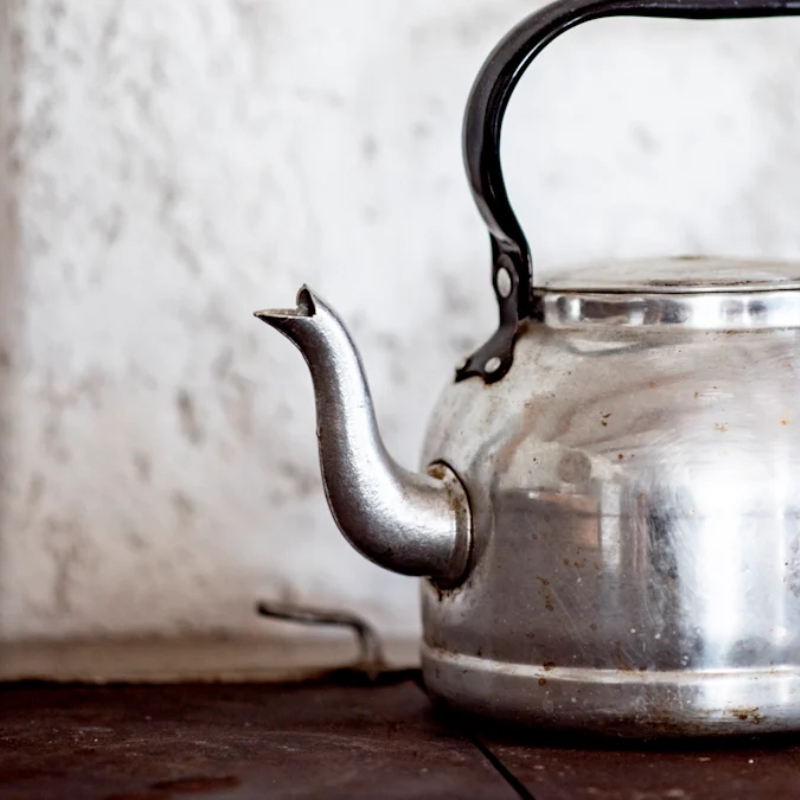Aluminum kettles are lightweight, affordable, and efficient for boiling water. But questions about their safety persist: Can aluminum leach into boiling water? Does using an aluminum kettle pose health risks? In this blog, we’ll explore the science, address common concerns, and provide practical tips for safely using aluminum kettles.
How Aluminum Reacts with Water
Aluminum is a reactive metal, but it forms a protective oxide layer when exposed to air or water. This layer acts as a barrier, preventing further corrosion and minimizing leaching into liquids. When boiling plain water in an aluminum kettle, the risk of significant aluminum transfer is low due to this natural oxidation process.
However, factors like water pH, temperature, and kettle condition can influence leaching. Acidic liquids (e.g., lemon water, vinegar) or damaged kettles with scratches may compromise the oxide layer, increasing aluminum exposure.
What Do Studies Say About Aluminum Safety?
The World Health Organization (WHO) states that the average person consumes 3–10 mg of aluminum daily through food, water, and cookware. While excessive aluminum intake has been linked to health concerns (e.g., neurological issues), research shows that minimal amounts leached from cookware are unlikely to exceed safe limits.
A 2020 study in Food Chemistry found that boiling water in aluminum boiling kettles for short periods released negligible aluminum levels—well below WHO’s recommended limit of 0.2 mg per liter. Long-term use and acidic solutions, however, may slightly increase leaching.
Tips for Safely Using an Aluminum Kettle
Avoid Boiling Acidic Liquids: Stick to plain water. Acidic substances (e.g., coffee, tea, citrus) can erode the protective oxide layer.
Clean Gently: Use non-abrasive sponges to prevent scratches. Harsh scrubbing can damage the kettle’s interior.
Pre-Oxidize New Kettles: Boil water 2–3 times and discard it before regular use. This strengthens the oxide layer.
Replace Damaged Kettles: Deep scratches or dents increase leaching risk.
Aluminum vs. Stainless Steel Kettles: Pros and Cons
Factor Aluminum Kettle Stainless Steel Kettle
Cost Budget-friendly More expensive
Weight Lightweight Heavier
Durability Prone to dents/scratches Highly durable
Heat Conductivity Heats up quickly Slower heating
Safety Concerns Low risk with proper use No leaching risks
FAQs About Aluminum Kettles
Q: Does aluminum cause Alzheimer’s disease?
A: No conclusive evidence links aluminum cookware to Alzheimer’s. Most aluminum exposure comes from food, not cookware.
Q: Can I boil tea or coffee in an aluminum kettle?
A: Avoid it. Acidic beverages may react with aluminum. Use stainless steel or enamel-coated kettles instead.
Q: How often should I replace my aluminum kettle?
A: Replace it if you notice deep scratches, discoloration, or corrosion.
Conclusion
Boiling water in an aluminum kettle is generally safe when used correctly. The protective oxide layer and minimal leaching risks make it a practical choice for everyday use. However, avoid acidic liquids and maintain your kettle properly. For those with health concerns, stainless steel or ceramic kettles are excellent alternatives.
By understanding the science and following simple precautions, you can confidently enjoy the convenience of your aluminum kettle without compromising safety.
Post time: Apr-08-2025

